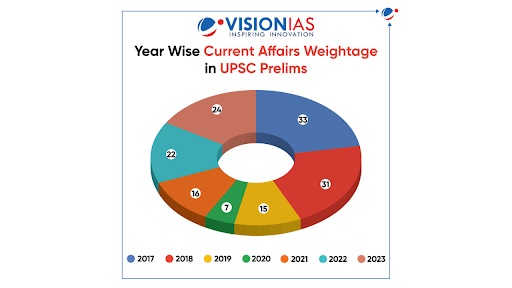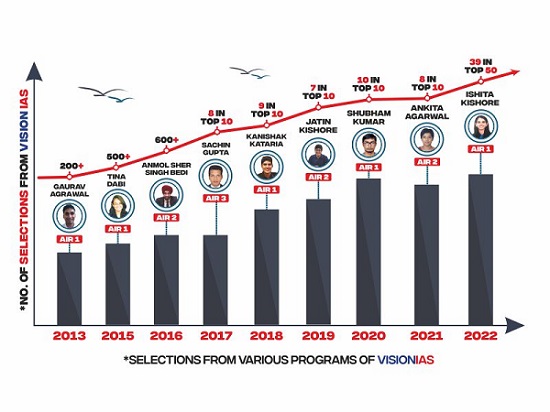Comprehensive Guide to Corporate Tax Registration and Filing in the UAE

The United Arab Emirates (UAE) introduced a federal corporate tax law which came to effect on 1st June 2023. It applies to all businesses operating in the country, with some exceptions. The corporate tax rate is 9 per cent on taxable income exceeding AED 375,000. However, some businesses in the free zones may benefit from a 0 per cent tax rate on qualifying income. This guide will provide you with the essential information on how to register, file, and pay corporate tax (CT) in the UAE, as well as the exemptions and penalties that may apply.
What is Corporate Tax (CT)?
UAE Corporate tax is a direct tax levied on the profit or net income earned by corporations and other entities from their business activities. Corporate tax is also known as corporate income tax or business profits tax.
The UAE corporate tax law, Federal Decree-Law No. 47 of 2022 on the Taxation of Corporations and Businesses, was issued by the Ministry of Finance on 9th December 2022 and establishes a Federal Corporate Tax in the UAE. The law covers all individuals and businesses that have a commercial-license and operate in the UAE, unless they are exempted.
What is the corporate tax rate in the UAE?
The corporate tax rate in the UAE is 9 per cent on taxable income exceeding AED 375,000, effective from the start of the financial year commencing on or after 1st June 2023. Taxable income is the net income or profit reported in the financial statements, adjusted for certain additions and deductions as per the corporate tax law and its executive regulations.
The below table summarizes the corporate tax rates in the UAE:

Who is subject to corporate tax in the UAE?
The CT will apply to a taxable person, who can be either a resident or a non-resident person, on whom the provisions of the UAE CT law are applicable and who is liable to pay CT under the law. The corporate tax applies on both residence and source basis.
Residence basis means that a resident’s income derived from domestic and foreign sources is taxable under UAE corporate tax. Source basis means that the corporate tax applies to a non-resident person’s income earned using the sources within the UAE.
1. A resident person can be:
* a juridical person (such as corporations) that is incorporated in the UAE or
* a foreign juridical person that is effectively managed and controlled in the UAE, or
* a natural person who conducts business or business activities in the UAE and has a turnover of over AED 1,000,000 per Gregorian calendar year from such business or business activities.
2. A non-resident person can be:
* Non-resident juridical persons (foreign juridical entities) that have a Permanent Establishment in the UAE
* Non-Resident Persons deriving State Sourced Income
* Non-resident juridical persons that have a ‘nexus’ in the UAE by virtue of earning income from Immovable Property in the UAE
There are some exemptions and incentives for certain categories of businesses and income under the UAE CT law.
Exempt Persons from Corporate Tax in the UAE
Article 4(1) of the UAE Corporate Tax Law provides exemptions from corporate tax (CT) for particular persons who have strong public interest and policy justifications for not being taxed. These persons are known as exempt persons. They fall into one of four categories:
1. Automatically exempt persons such as Government Entities which include the Federal Government, Local Governments, government departments, government agencies, authorities and public institutions of the Federal Government or Local Governments.
2. Exempt if they notify the Ministry of Finance and meet relevant conditions: This category includes businesses that are involved in either extraction or non-extraction of natural resources can qualify for corporate tax exemption if they satisfy the required criteria.
3. Exempt if listed in a Cabinet Decision and meet relevant conditions: It includes government controlled entities and qualifying public benefit entities.
4. Exempt upon application to and approval by the FTA: Following persons can get an exemption from corporate tax (CT) if they apply to the Federal Tax Authority (FTA ) and show that they fulfill the necessary criteria:
* A public or private pension fund or social security fund that is under the supervision of the relevant authority in the UAE and complies with certain conditions;
* A qualifying investment fund; and
* A juridical person incorporated in the UAE that is fully owned (directly or indirectly) and controlled by one of these exempt persons:
* A government entity,
* A government controlled entity,
* A qualifying investment fund that satisfies the relevant conditions set out in Cabinet Decision No. 81 of 2023;
* A public pension fund or social security fund; or
* A private pension fund or social security fund that meets the relevant conditions laid down in Ministerial Decision No. 115 of 2023.
Corporate Tax Registration in the UAE- Who need to Register?
All Taxable Persons should register for Corporate Tax with the Federal Tax Authority also know as ‘FTA‘ and obtain a Tax Registration Number for Corporate Tax. This needs to be done before a deadline to be determined by the FTA. All Taxable Persons are encouraged to register for Corporate Tax as soon as they become aware that they will be within the scope of Corporate Tax.
Non-Resident Persons that do not have a Permanent Establishment in the UAE and only earn State Sourced Income can choose not to register for Corporate Tax purposes. However, Non-Resident Persons that have a nexus in the UAE (arising from earning income from Immovable Property in the UAE) are required to register.
The FTA can, at its discretion, register a Person for Corporate Tax if, on the basis of information available to it, the FTA believes the Person is a Taxable Person. If a Corporate Tax registered Person ceases to be a Taxable Person for any reason, they should file a Tax Deregistration application with the FTA.
How to register for corporate tax in the UAE?
To register for corporate tax in the UAE, you need to access the EmaraTax portal, which is the official e-service platform of the FTA. The following steps are required for corporate tax registration in the UAE:
1. Gather the required documents: The following documents are required for corporate tax registration.
a. In case of applicant is a Natural person:
* Trade license, where applicable
* Emirates ID / Passport of the applicant
b. In case of application is a Legal Persons:
* Trade license
* Emirates ID / Passport of authorized signatory
* Proof of authorization for the authorized signatory.
2. Create an account on Emaratax portal: To register for corporate tax with Emaratax portal, a taxable person need to follow these steps:
* Step 1: Register or log in to Emaratax portal with your email ID and phone number.
* Step 2: Create or choose the taxable person that you want to register for corporate tax.
* Step 3: Select the corporate tax registration option and fill in the required information.
3. Submit the application and wait for approval: The confirmation email and SMS will be sent to the applicant upon successful submission of the application. The corporate tax ID or number will be issued by the Federal Tax Authority (FTA) within 20 business days of approving the application. A Corporate Tax Registration Number (CTRN) and a tax certificate are issued once the application is approved.
What are the benefits of registering for corporate tax in the UAE?
Registering for corporate tax in the UAE has several benefits for businesses, such as:
* Compliance with the UAE tax laws and regulations, and avoidance of penalties and fines for non-compliance
* Access to the EmaraTax portal, which allows businesses to file their corporate tax returns, pay their corporate tax liabilities, request tax certificates, apply for tax refunds, and communicate with the FTA
* Eligibility for tax treaties and tax incentives that the UAE has with other countries, which can reduce the tax burden and enhance the competitiveness of businesses
* Contribution to the economic development and diversification of the UAE, and support for the government’s strategic objectives and initiatives.
UAE Corporate Tax Return Filing Deadlines
According to Article 51 of the UAE Corporate Tax Law, a person who is liable to pay tax must submit his tax returns to the authorities following their instructions. The taxable person must file such a return within nine months from the end of the applicable tax period or on the date specified by the authority.
All businesses will have different due dates for filing their corporate tax returns depending on their financial year end. For ex. A Taxable Person whose Financial Year ends on 31 December must file and pay their Corporate Tax by 30 September of the next year. If they fail to do so, they will face a penalty.
The Taxable Person or someone who is authorized to act on their behalf, such as a tax agent or a legal representative, can submit the Tax Return.
If a Tax Group is established, the Parent Company is responsible for filing Tax Returns for the entire Tax Group. There is no requirement for each Tax Group member to file a separate return.
The following table shows the deadlines for filing and paying corporate tax in the UAE, based on different financial year start and end dates:

Conclusion
Corporate tax is a new and important development in the UAE tax system that affects all businesses operating in the country. It is essential to understand the corporate tax law and its implications and comply with the corporate tax obligations to avoid penalties and risks. By following this comprehensive guide, you can register and file for corporate tax in the UAE with ease and confidence.
How Farahat & Co. Can Help You with Corporate Tax Compliance in the UAE
Are you looking for a reliable and professional corporate tax consultant in the UAE? Do you want to comply with the new corporate tax law and avoid penalties and fines? If yes, then you need Farahat & Co., the leading tax consultancy firm in the UAE. Farahat & Co. has a team of qualified and experienced tax consultants who can help you with all aspects of corporate tax registration, filing, and payment. They can also advise you on the best tax strategies and solutions for your business, whether you operate in the mainland, offshore, or free zone. Farahat & Co. offers transparent and cost-effective services, and guarantees your satisfaction and peace of mind. Don’t wait, contact Farahat & Co. today. Farahat & Co. is your trusted partner for corporate tax compliance in the UAE.

















































































































































































































































































































































































































































































